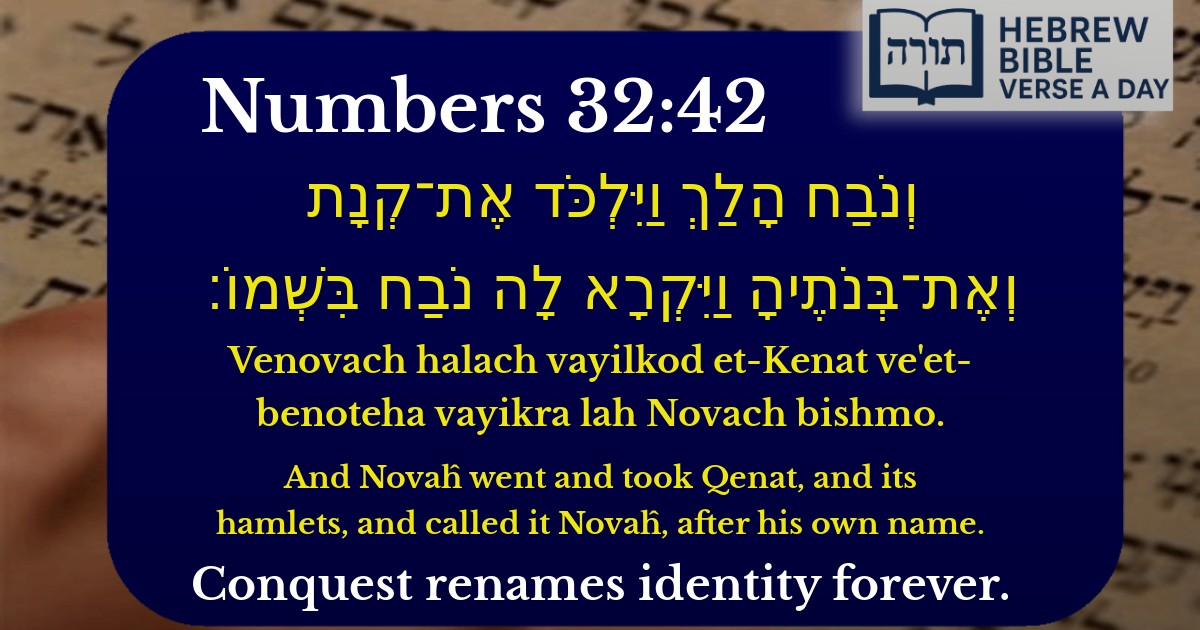Join Our Newsletter To Be Informed When New Videos Are Posted
Join the thousands of fellow Studends who rely on our videos to learn how to read the bible in Hebrew for free!
Hebrew Text
וְנֹבַח הָלַךְ וַיִּלְכֹּד אֶת־קְנָת וְאֶת־בְּנֹתֶיהָ וַיִּקְרָא לָה נֹבַח בִּשְׁמוֹ׃
English Translation
And Novaĥ went and took Qenat, and its hamlets, and called it Novaĥ, after his own name.
Transliteration
Venovach halach vayilkod et-Kenat ve'et-benoteha vayikra lah Novach bishmo.
Hebrew Leining Text
וְנֹ֣בַח הָלַ֔ךְ וַיִּלְכֹּ֥ד אֶת־קְנָ֖ת וְאֶת־בְּנֹתֶ֑יהָ וַיִּקְרָ֧א לָ֦הֿ נֹ֖בַח בִּשְׁמֽוֹ׃ {פ}


Context in Sefer Bamidbar
The verse (Bamidbar 32:42) describes the conquests of the tribe of Menashe in Transjordan, specifically the actions of Novach, a descendant of Menashe. This occurs during the division of the land under Moshe's leadership before entering Eretz Yisrael.
Rashi's Explanation
Rashi notes that Novach was from the family of Machir (Bamidbar 32:39-40) and emphasizes that he conquered Kenat on his own initiative, separate from the general conquest led by Moshe. This demonstrates the special merit and strength of Novach.
Naming After Himself
The act of renaming the city after himself is interpreted by the Da'at Zekeinim MiBa'alei HaTosafot as an expression of ownership and permanent settlement. This follows the precedent of other biblical figures who renamed conquered locations (e.g., Judges 18:29).
Historical Significance
The Ramban explains that this conquest was part of fulfilling the promise to Avraham of inheriting the land (Bereishit 15:18-21), extending even to Transjordan when inhabited by descendants of Avraham.
Lessons in Leadership